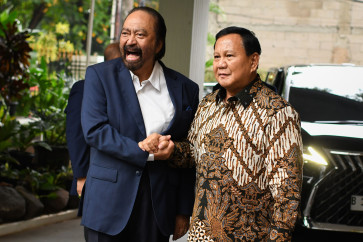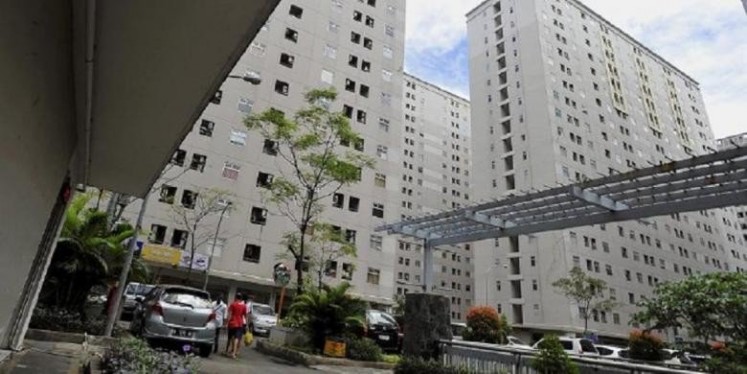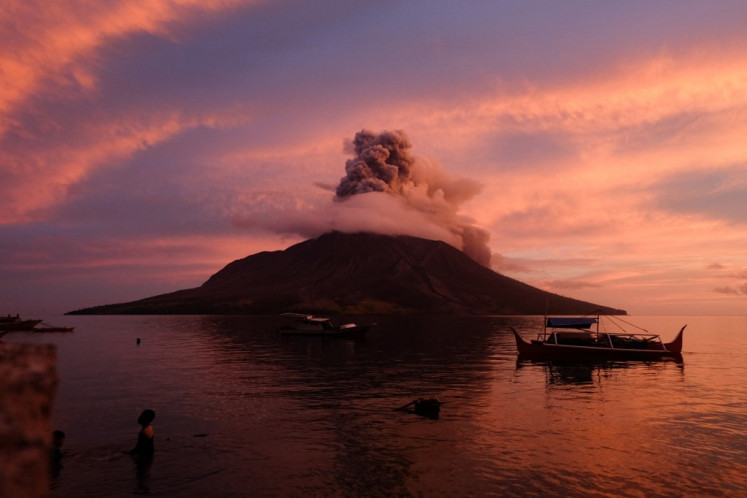RI to expand use of B20 biodiesel
The government has made the first step in its plan to reduce imports by expanding a biofuel policy to include non-subsidized diesel, amid the appreciation of the United States dollar and ongoing trade tensions between the US and China
Change Size

T
he government has made the first step in its plan to reduce imports by expanding a biofuel policy to include non-subsidized diesel, amid the appreciation of the United States dollar and ongoing trade tensions between the US and China.
The government has issued regulations on the use of a 20 percent biodiesel mix (B20) that would be mandatory for subsidized diesel fuel — sold by state-owned oil and gas company Pertamina under the brand Solar — starting from 2016.
The use of B20 in non-subsidized diesel fuel was still optional.
But after a Cabinet meeting on Friday, Cabinet Secretary Pramono Anung said President Joko “Jokowi” Widodo had decided to make B20 mandatory for non-subsidized diesel fuel as well. The government, he said, would later issue a revised regulation.
“The President wants B20 to be fully implemented. It will have a huge impact on our foreign reserves while reducing fuel imports,” he said during a press conference at the State Palace in Jakarta on Friday.
According to Energy and Mineral Resources Ministry data, Solar consumption has averaged at 15 million kiloliters per year.
Meanwhile the use of non-subsidized diesel fuel, which is commonly used by ships or to fuel electric generators and mining equipment, reached around 16.2 million kl per year.
Industry Minister Airlangga Hartarto has said that if B20 was implemented for the 16.2 million kl of non-subsidized diesel, demand for crude palm oil (CPO) would increase by around 3.2 million tons. In 2017, national CPO production capacity stood at 38 million tons.
“Out of 38 million tons, 7.21 million tons are exported and 8.86 million are supplied to the food industry. This means that the additional 3.2 million tons in demand would not disrupt the food industry,” he said.
Coordinating Economic Minister Darmin Nasution said the policy could save Indonesia US$5.5 billion per year.
“We have conducted the calculations and after cross checking some data. We can save $5.5 billion per year,” he said.
Although modern car engines are able to take in the B20 mix, larger ones such as those used by trains and ships are unable to withstand such a high mix of biofuel.
According to Transportation Minister Budi Karya Sumadi, trains currently use B7, but testing on B20 is still being conducted by PT Kereta Api Indonesia (KAI) and the Energy and Mineral Resources Ministry.
Indonesian Biofuel Producers Association (Aprobi) chairman Paulus Tjakrawan said if the test results — scheduled to be announced next month — turned out positive, biodiesel consumption could be increased by 300,000 kl annually.
Indonesia’s annual consumption of biodiesel was still far below its installed capacity.
“We have 20 [producers] with a total installed capacity of 12 million kl, but only 25 percent or 3 million kl are being utilized. If we have to provide an additional 3.2 million kl for non-subsidized diesel fuel, it would be no problem for us,” Paulus said.
Minister Airlangga said B20 expansion was a part of Indonesia’s national biodiesel roadmap.
In the medium term, the government plans to implement the B100 rule, or “Green Diesel”. B100 requires more advanced technology to purify the required vegetable oil.
“Some investments have been made in Indonesia [to produce] B100, such as by Haldor Topsoe from Denmark and Finland’s Neste. The investment amount for B100 is $400 million per 100 million kl per year,” he said.









